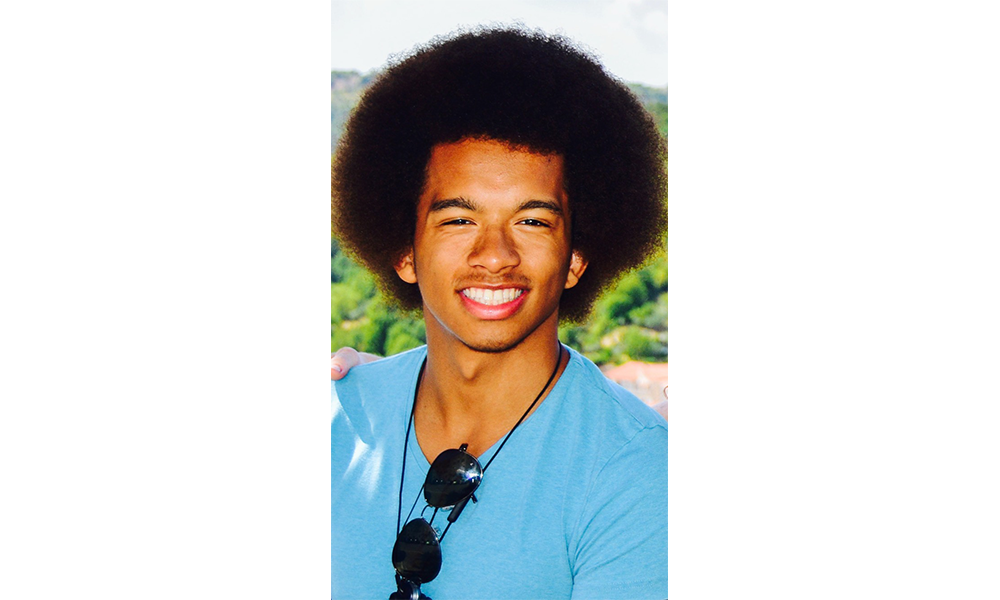Checking In With Our College-Aged Alums: Ben Francis ’17

Every year we checks in with our alums who are either in college or have just graduated. With the pandemic, the economic downturn, and the national demand for social justice, this is a crucial year to find out how our alums are coping.
Ben Francis, A Rising Senior at Brandeis University (BFS ’17)
Tell me about your work at college.
I’m studying biology and I’m a varsity swimmer on the swim team at my school. I’m also a lifeguard, concert usher, and I was a teaching assistant in the spring of 2019 for an introductory biology course
What has this year looked like for you, pre- and during the pandemic?
For me, pre-pandemic was pretty normal. My classes were going alright, and I was in the middle of studying for a few midterms. Online classes were different, to say the least, being very hard to adjust to. The unfamiliarity with online learning caused some issues, and distractions at home proved difficult to overcome. However, all went well, and I still did well despite the switch to online. Brandeis handled the switch as smoothly as they could.
What’s the plan for the summer and fall?
For the summer, I was planning to get a summer research position at a university nearby, but because of the pandemic all the opportunities were cancelled. I am now volunteering at two physical therapy clinics aiding adults and children alike in exercises rehabilitating them from broken bones, torn muscles, slipped and herniated discs, etc.
What age did you enter BFS?
I entered BFS at age 3.
What teachers had a profound effect on your experience at BFS?
One teacher/member of faculty that had a profound effect on my BFS experience was former diversity director Dr. Eddie Moore. Talking with him made any place feel like home. When he worked at BFS, his smile was always beaming whenever you saw him, and he never shied away from asking the very necessary questions we all needed to ask ourselves as students and as people living in an unjust society. While at BFS he gave us the opportunity to attend the White Privilege Conference every year, which educated us about and challenged the concept of white privilege and racism. The conference also gave students the tools to combat oppression. He would always give all students a platform to make their voices heard and would encourage us to delve deep into and challenge our own ways of thinking. At a school that tries to tell its students to be okay with stepping into uncomfortable topics, Dr. Eddie Moore was truly a valuable asset to the faculty, staff, and the BFS community as a whole.
Another teacher/faculty member that had a profound effect on my experience at BFS was former math department head Zenzile Keith. Zenzile is a mother of three children, having her third child while teaching at BFS, but she was truly a mother to us all. While she worked at BFS, the math office was so welcoming that it felt as if something was pulling you in there even if you didn’t need any math help. I remember one weekend during finals week, Zenzile opened up the school with her own free time that she definitely could have used to be with her family, to help tutor all students who were struggling in math, or simply just struggling in general. Whether their struggles were school related, family related, or mental health related her motherly instinct could always tell when something was off, and she never stopped showing her support. It’s a shame that current BFS students will never have the same experience I had with Zenzile Keith, but the values that she instilled in me still shine bright to this day.
What advice would you give current students at BFS?
To current students at BFS, I suggest you always keep your eyes open and always explore farther if you think something is unjust. BFS will give you plenty of these opportunities to dig deeper, so don’t pass them up. Challenge yourself, challenge your peers, and most importantly, challenge the faculty and staff. As a people, we learn the most when we are challenged to figure out the reasons why we think what we think and do what we do.
How did the Quaker education you received at BFS prepare and guide you for your studies at college, on a micro and macro level? (For example, daily life and challenges, as well as the larger issues of growing up, being away from home, and navigating the world of the university for the first time?”)
Being at a Quaker institution gave me my own voice. I was quiet, a lot of the time, when injustice happened but my classmates, and some former faculty like Zenzile Keith and Dr. Eddie Moore, were leaders, by example. They showed me and many others how to make our voice heard in our school, and I attribute that to the value of integrity to oneself that Quakers believe.
What’s a lesson you’re taking from these last several months that you feel will impact your growth or has made you more resilient?
One lesson that I’ve taken is to stand up for what I believe in. In these very difficult times, both with Corona and the unjust killings of black men by the hands of police, it’s very easy to feel defeated. However, seeing the voices of young people all around the world speak against injustice has inspired me to do the same. I hope BFS can encourage students to find their own voice and provide them resources, like the White Privilege Conference or a robust Privilege Day, to educate them about the world we live in.
